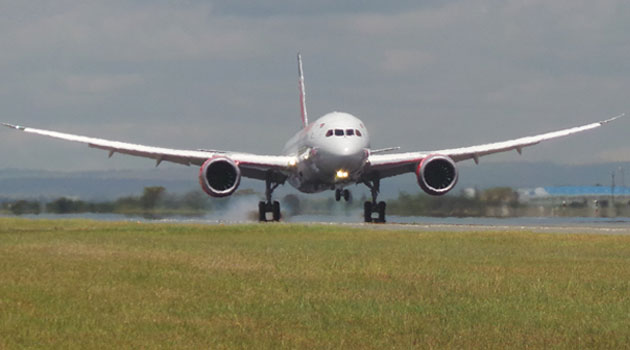
The exhibition will be used to address industry issues that include, double taxation by the national and county governments which makes Kenyan produce uncompetitive in the international markets and food safety issues/FILE
NAIROBI, Kenya, Sept 12 – Kenyan farmers stand to benefit following permission by the United Stated Department of Transportation allowing Kenya Airways to fly directly into America.
The Fresh Produce Exporters Association of Kenya (FPEAK) CEO Hosea Machuki says Kenyan avocados, for instance, will have a wide market to explore, but this is subject to the approval by the US government.
Currently, data by Kenya National Bureau of Statistics indicates that Kenya’s exports to the US are about Sh35.3 billion with 18 per cent of being fruits and nuts, 8 per cent to coffee and 1.4 per cent to tea and flowers.
The value of exports of fresh horticultural produce increased from US$816 million (Sh83.9 billion) in 2014 to US$877 million (Sh90.1 billion) in 2015.
“This was attributed to better unit prices for vegetables and higher volumes of fruits exported,” Machuki said.
The value of vegetables exported increased by 11.2 per cent from US$182 million (18.7 billion) in 2014 to US$203 million (Sh20.8 billion) in 2015. Additionally, Kenya’s earnings from horticulture exports rose by 20 per cent to Sh77.81 billion in the first nine months of 2016 compared to 2015.
Machuki was speaking ahead of the two-day fruits and flowers exhibition – a first of its kind in Kenya – which kicks off Wednesday at the Kenya School of Monetary Studies.
The exhibition will be used to address industry issues that include, double taxation by the national and county governments which makes Kenyan produce uncompetitive in the international markets and food safety issues.
“Typically, monitoring of pesticide residues, microbiological load and heavy metal contaminants for produce consumed in the domestic market is not closely monitored and contaminant tests are rarely carried out hence bringing issues of food safety.”
Other areas that will be addressed include food control systems, safety in production, storage, distribution and marketing, traceability, policy and regulatory enforcement, advocacy and consumer awareness.


































